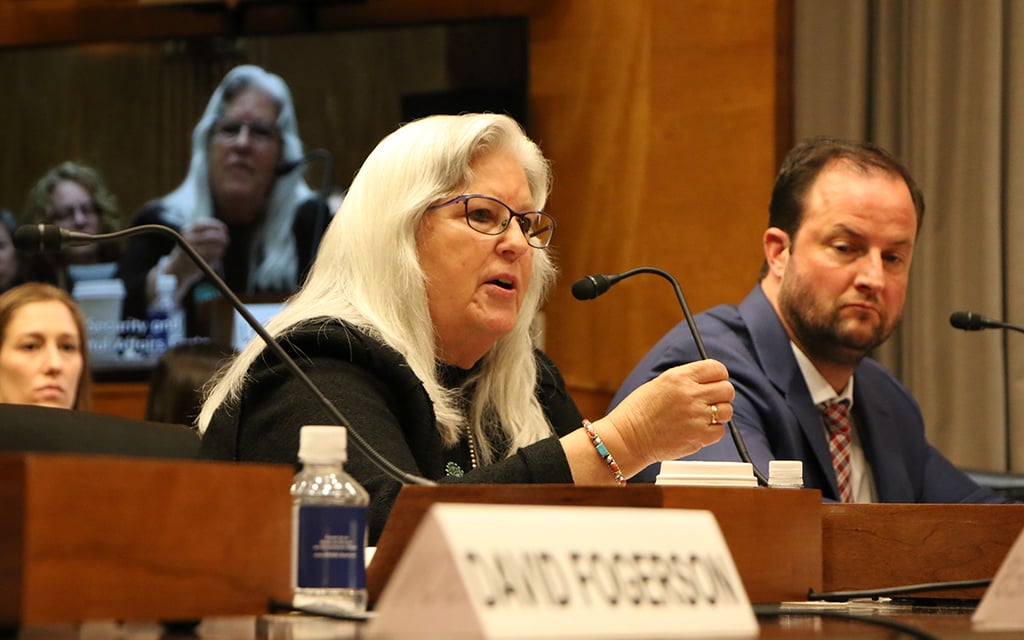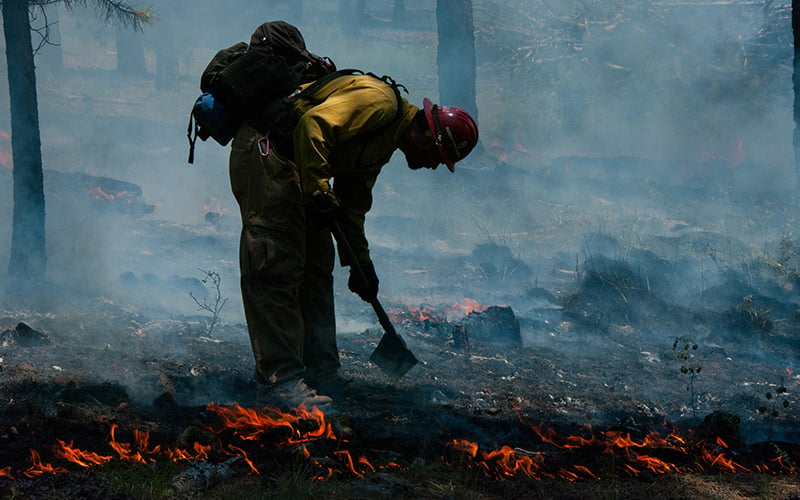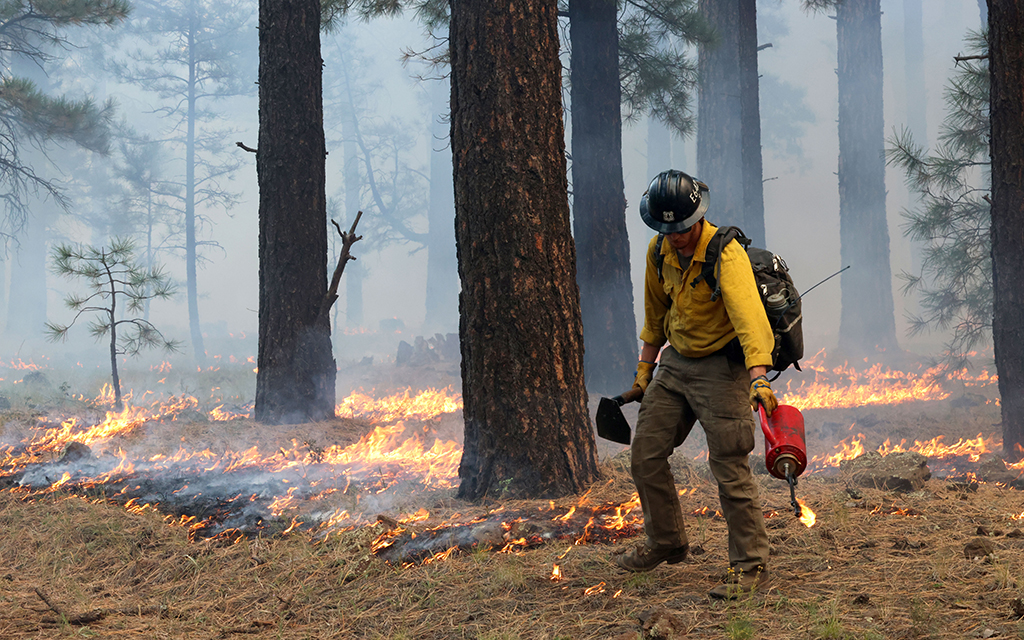
Coconino County Deputy Manager Lucinda Andreani told senators that parts of the federal system for responding to wildfires work quite well, but that there many areas where accessibility of federal assistance could be improved. (Photo by Ian McKinney/Cronkite News)
WASHINGTON – The nine wildfires that have swept through Coconino County since 2010 have led to the loss of more than 130 buildings, the issuance of more than 25,000 evacuation orders and the release of 4.1 million metric tons carbon into the atmosphere.
And that’s just the start of the problems, Coconino County Deputy Manager Lucinda Andreani told a Senate panel Thursday.
Andreani was one of several witnesses who called for improvements in the way federal agencies respond to crises like wildfires, during the Senate Homeland Security and Governmental Affairs Committee hearing titled “A Nation on Fire.”
“Recovery programs are the challenge,” said Chris Currie, director of Homeland Security and Justice for the Government Accountability Office. “All these recovery programs across the 30 different agencies of the federal government that provide some type of assistance. They were never designed to work together for recovery.
“They all have different rules, requirements, timeframes, and they’re not designed to work in concert together,” Currie said. “And so what happens is at the state and local level, that’s just a very, very frustrating process in the years of recovery after.”
Those shortcomings were addressed in a report to Congress last fall by the Wildland Fire Mitigation and Management Commission, which called for 148 areas where it said federal response needs to be improved.
“There are opportunities for federal support and much must be done to improve the accessibility, immediacy and effectiveness of the federal response to the wildfire crisis,” said Andreani, who was one of the 33 members of that committee.
The report outlines ways to increase wildfire preparedness and to help streamline the recovery process when these events do happen. The recommendations include strategies to change how aid is distributed by the Federal Emergency Management Agency and the Stafford Act, which authorizes the agency to provide disaster relief.
Andreani said after the hearing that federal assistance is “particularly impactful to counties in Arizona that are impacted by post-wildfire flooding,” but that problems with FEMA and the Stafford Act ” come up repeatedly in Arizona.”
Sen. James Lankford, R-Okla., shared the witnesses’ frustration over the red tape that accompanies aid requests.
“Obviously, while you’re waiting on permitting, you’re dealing with the potential of a pretty expansive wildfire and for some reason wildfires don’t wait on NEPA (National Environmental Policy Act) permits,” Lankford said.
Andreani did mention after the hearing that parts of the system do work quite well.
“We have had significant success working with the U.S. Department of Agriculture and U.S. Forest Service and Natural Resources Conservation Service on post-wildfire mitigation, and working with the Forest Service on pre-fire restoration and working to improve the health of our forests,” she said.
Currie said the best way to fix many of these problems would be to change the way of thinking about wildfires, responding to them on the federal level more like hurricanes.
“With wildfires, we sort of wait and hope it doesn’t happen. We hope it doesn’t cross from federal rural land into a populated area,” Currie said. “That’s just got to change. That mentality and whatever sort of rules that are in the legislation behind that needs to change.”

A firefighter works in the Coconino National Forest in this 2018 file photo. Coconino County Deputy Manager Luciana Andreani said the county has endured nine major wildfire since 2010. (Photo courtesy Coconino National Forest)
Sen. Jacky Rosen, D-Nev., agreed with Currie, saying we need to give wildfires “the same respect that we give the disaster of hurricanes.”
“We need to be proactively ready to prepare,” Rosen said. “This is impacting our homes, our communities, our health, our ability to manage everything that happens. We have to do more to detect and respond, but moving that designation up to be like a hurricane.”
Andreani, who is also the county’s flood control district administrator, said she hopes that Thursday’s hearing was the first in a series of steps by the federal government to help reform the broken aid system. She stressed the importance of federal aid, saying “the scale of these crises rapidly overwhelms the capacity of local governments.”
“I hope that we’ll see Congress take action to change those measures within FEMA that can make it more responsive to local needs relative to the types of wildfire related disasters that we’re seeing,” Andreani said. “Clearly there was an interest expressed today and I remain hopeful that we will see those efforts advanced through legislation.”

